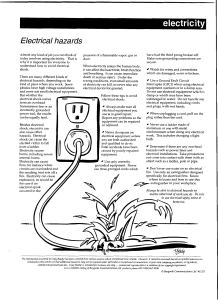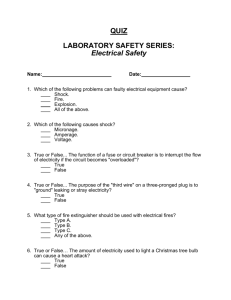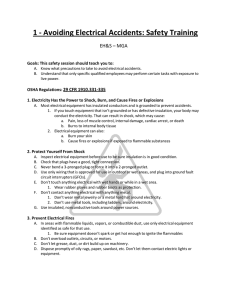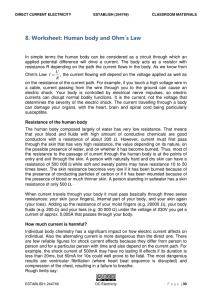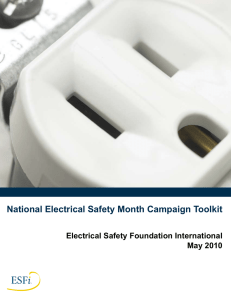How to Prevent Electrical Shock
advertisement
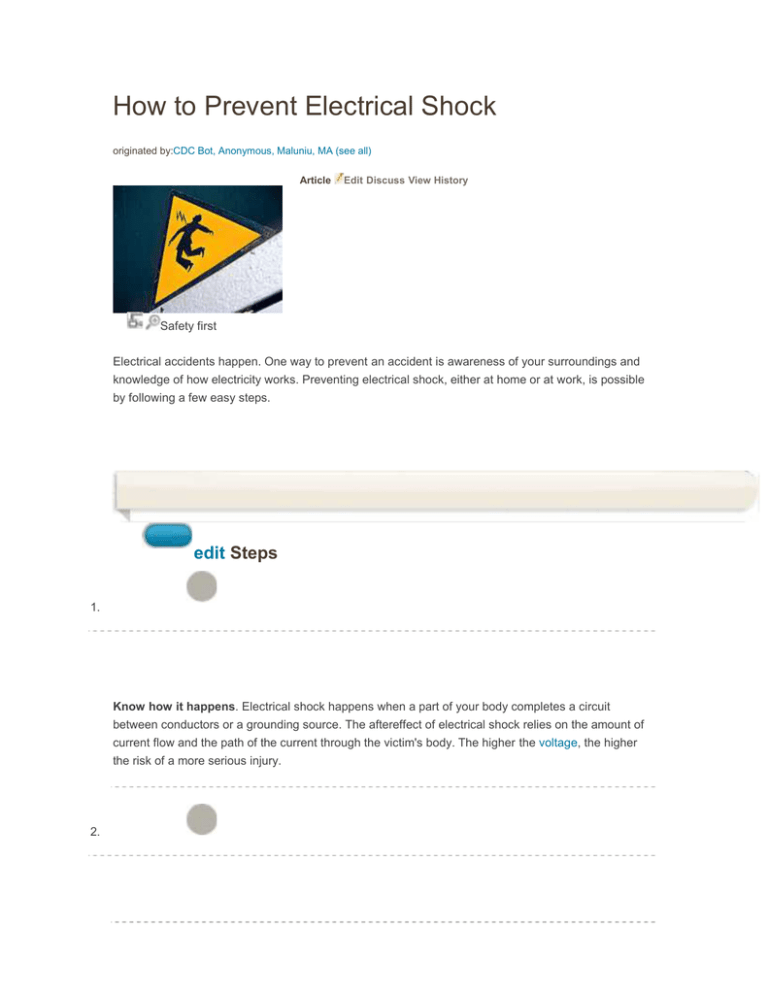
How to Prevent Electrical Shock originated by:CDC Bot, Anonymous, Maluniu, MA (see all) Article Edit Discuss View History Safety first Electrical accidents happen. One way to prevent an accident is awareness of your surroundings and knowledge of how electricity works. Preventing electrical shock, either at home or at work, is possible by following a few easy steps. edit Steps 1. 1 Know how it happens. Electrical shock happens when a part of your body completes a circuit between conductors or a grounding source. The aftereffect of electrical shock relies on the amount of current flow and the path of the current through the victim's body. The higher the voltage, the higher the risk of a more serious injury. 2. 2 Educate yourself. Know the following: o o o o o o Voltage is the force that causes the flow of current. Current is the amount of electricity that is flowing. Resistance slows down or stops the flow of current. The greater the resistance the lower the amount of flow. A ground is a connection between the electrical circuit and the earth. Electricity always seeks a ground. 3. 3 Be safe. Here are a few tips to follow: o o o o o o o Never overload electrical circuits. Check electrical cords for fraying, signs of wear, and defects. Always cut off the power switches when working on equipment. Keep all electronic equipment away from dampness and water. Inspect your area for any electrical hazards. In case of an electrical fire, shut the power off and use a fire extinguisher on the fire. Never use water to put out an electrical fire! To do so could result in a fatal shock. Use fire extinguishers that are recommended for electrical fires only. 4. 4 Understand that to prevent the risk of an electrical shock, you must make sure that your body cannot become part of the electrical flow and a path for the current. edit Tips Throw away or replace any worn or defective electrical cords. When working on any electrical equipment, check, then double check, to be sure there is no source of electricity flowing. Keep a fire extinguisher handy in areas where you work with electronic equipment. Never assume that someone else has cut off the power source. Check for yourself. Contact a professional electrician to do extensive electrical work. Fire extinguishers for use on electrical fires will be labeled as a C, BC, or ABC extinguisher. edit Warnings Avoid contact with electrical equipment in damp or wet areas.
